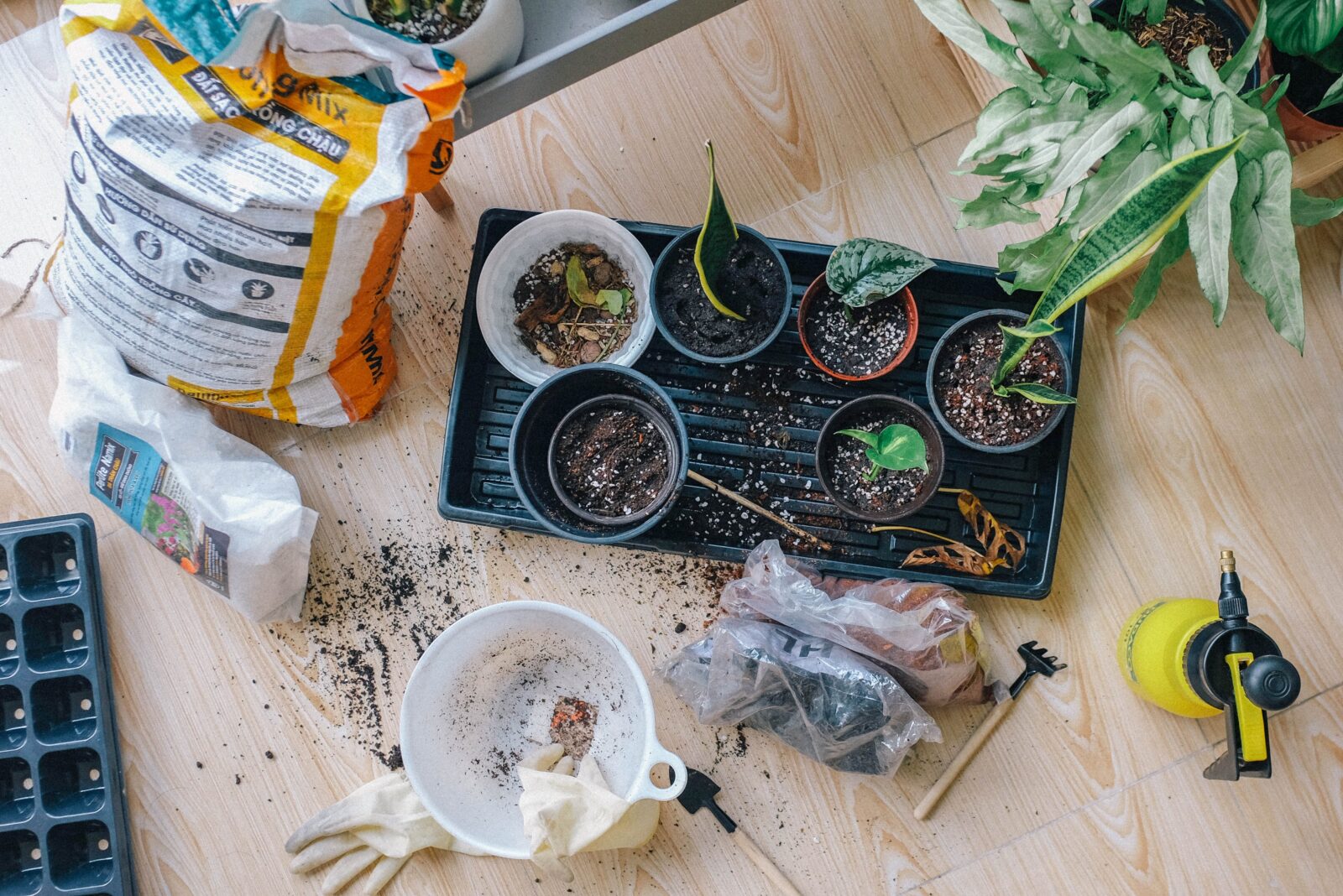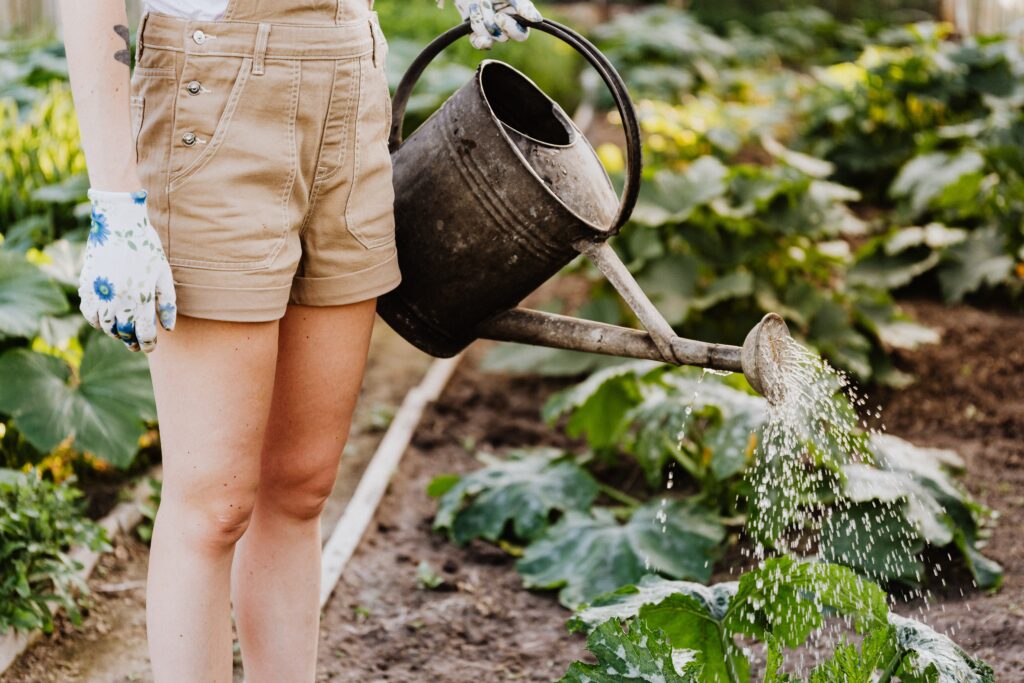Cultivating Balance: The Therapeutic Role of Gardening in College Student Life

Introduction
In the busyness of college life, it’s important to find times of peace and balance. One surprising avenue for achieving this equilibrium is gardening. Engaging with nature through gardening has proven to be a powerful therapeutic activity. It offers college students a myriad of physical, mental, and emotional benefits. This article will explore:
- nature’s healing power;
- gardening’s stress-relieving effects;
- enormous effects on students’ well-being.
The Healing Power of Nature
Even though college life is mostly made of concrete, the appeal of nature is still strong. Research demonstrates the positive effects of exposure to green spaces on mental health. Our natural link to nature is called “biophilia,” and it shows how important it is to include nature in our lives. Gardening, a personal relationship with nature, strengthens this bond.
Gardening as a Stress Reliever
Amid the demanding realm of college life, where the weight of assignments and essay deadlines can cause significant stress, the act of tending to plants takes on a unique therapeutic role. Just like caring for plants to counterbalance academic pressures you can buy custom essay online which will give you a little release. Nurturing plants as they grow and witnessing the tangible results of your efforts can give you a little release too. The rhythmic and repetitive nature of gardening labor calms the stressed mind.
As students struggle with research, analysis, and expression in their writing, gardening can generate endorphins that boost mood and well-being. The soil’s texture and leaves’ subtle rustle temporarily distract children from worry. This intimate experience with nature relaxes them and reenergizes them. That allows them to write better essays. Students can balance academics and nature by combining gardening and essay writing.
Connection Between Gardening and Mental Health
Beyond stress relief, gardening has a profound impact on mental health. Gardening releases serotonin, a chemical that regulates mood and happiness. This serotonin boost can help college students with academic difficulties and mood swings.
Benefits for College Students
Reducing Academic Stress
College life often comes with an avalanche of academic responsibilities. The therapeutic escape can reduce this stress, offering a productive outlet to redirect anxious energy.
Promoting Mindfulness
Gardening encourages mindfulness—a mental state focused on the present moment. Tactile interaction with soil, plants, and the environment distracts from future and past problems.
Fostering Creativity
The garden serves as a canvas for creativity. From designing layouts to choosing plant combinations, students can exercise their creative muscles. This provides a refreshing break from the analytical demands of their studies.
Getting Started: Tips for Gardening in College
Choosing the Right Plants
With limited time and space in college, low-maintenance plants like succulents or herbs can make gardening easier and more fun.
Working with Limited Space
Dorm rooms and small apartments offer limited gardening space. Vertical gardening, window boxes, and hanging planters are all creative ways to fit plants into small areas.
Time Management
Balancing academics and extracurriculars requires effective time management. Viewing gardening as a therapeutic respite rather than a chore can help students prioritize it in their schedules.

Creating a Garden Routine
Morning Rituals
Starting the day with a few minutes in the garden sets a positive tone. It’s a moment to breathe in fresh air, set intentions for the day, and observe the subtle changes in your growing plants.
Midday Refreshers
Amid study sessions, take short breaks to step into the garden. A brief encounter with nature can reenergize the mind, enhancing focus and productivity.
Evening Wind-Down
Gardening at sunset offers an opportunity to unwind. The tranquil atmosphere and the act of caring for your plants can help transition from a busy day to a restful evening.
Building a Connection with Plants
Nurturing and Care
Gardening fosters a sense of responsibility, as students become caregivers to their plants. This nurturant role cultivates empathy and compassion.
Learning Patience and Responsibility
Plant growth is a gradual process. As students patiently wait for seeds to sprout or flowers to bloom, they learn the value of patience and the rewards of consistent effort.
Gardening Communities on Campus
Clubs and Groups
Many college campuses host gardening clubs, offering a sense of community to enthusiasts. These clubs provide a platform for sharing:
- experiences;
- knowledge;
- and even organizing gardening events.
Collaborative Gardens
Some campuses feature collaborative gardens where students contribute to maintaining a green space. These shared gardens foster teamwork and a sense of ownership.
Harvesting and Sharing the Rewards
The moment of harvest is a culmination of students’ dedication and care. The harvest not only includes tangible produce but also a sense of accomplishment and pride.
The Therapeutic Aspect of Growth
Metaphor for Personal Development
Gardening mirrors personal growth. Just as plants require nurturing, setbacks, and resilience to flourish, so do individuals. The journey of tending to a garden becomes a metaphor for navigating life’s challenges.
Embracing Life’s Seasons
The cyclical nature of gardening teaches students to embrace change. Seasons of growth, dormancy, and rebirth mirror life’s phases, imparting lessons of impermanence and adaptability.
Gardening and Sustainability
Education on Green Practices
Gardening exposes students to sustainable practices like composting, water conservation, and natural pest management. These lessons contribute to a deeper understanding of ecological responsibility.
Appreciating the Ecosystem
Interacting with plants and insects in the garden fosters a greater appreciation for the interconnectedness of all life forms. This awareness can influence students’ daily choices in favor of environmental preservation.
Overcoming Challenges and Setbacks
Dealing with Pest and Disease
Encounters with pests and diseases are inevitable in gardening. Overcoming these challenges requires problem-solving skills and adaptability, qualities that are transferable to various life situations.
Resilience and Adaptation
Unpredictable weather and unexpected setbacks teach students resilience. They learn to adapt their gardening strategies, which mirrors the flexibility required to overcome obstacles in life.
Testimonials from College Gardeners
“Gardening Gave Me a Sense of Purpose” Sophia, a college student, shares, “Amidst my busy schedule, nurturing my garden became a therapeutic anchor. Watching my plants thrive gave me a sense of purpose beyond academics.”
“A Refreshing Pause” Tom, another student, reflects, “When stress levels peak, a few minutes in my garden acts as a refreshing pause. It’s a tangible reminder that life exists beyond textbooks.”
Conclusion
Gardening offers a sanctuary of balance in the whirlwind of college life. Its therapeutic benefits encompass stress relief, mindfulness, creativity, and personal growth. Students learn the importance of nature and well-being by creating green spaces in their studies.
Author’s bio
Karl Bowman is a seasoned wordsmith with a penchant for crafting compelling narratives and conducting in-depth research. With a wealth of experience in the realm of content writing, Karl’s expertise lies in distilling complex ideas into accessible prose. His passion for meticulous research and dedication to the art of essay composition make him an invaluable contributor to the field of written expression.





